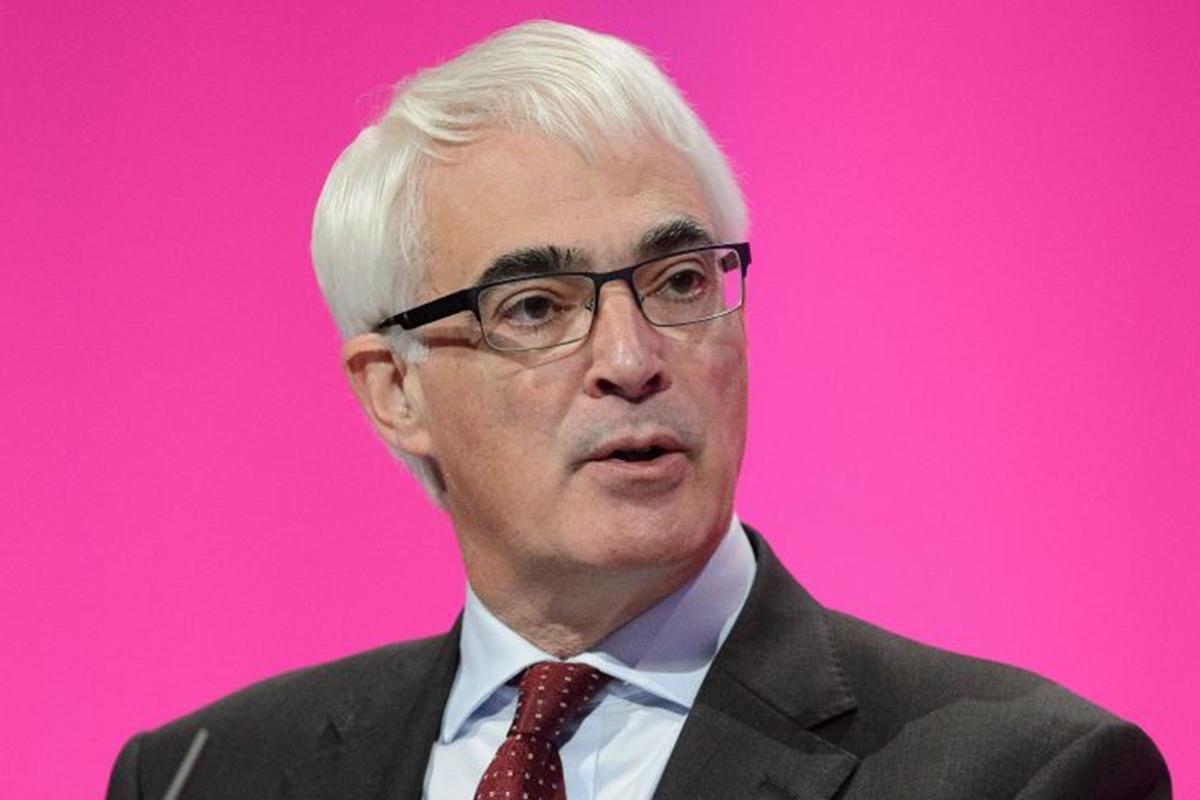Angry Brexit voters 'could form Trump-like nationalist movement', warns former Chancellor Alistair Darling
Darling suggests Ukip or a similar movement could reap the benefit of mass dissatisfaction

The former Chancellor Alistair Darling has warned that disillusioned voters who backed Brexit could flock to a populist nationalist movement headed by a Donald Trump-like figure as they turn against Theresa May’s Government.
The Labour peer said this week’s Autumn Statement would do nothing for the people who felt “left behind” by globalisation, even though Mrs May promised to champion working class families on becoming Prime Minister in July.
Lord Darling doubted that his own party would benefit from the anger of voters who see their living standards decline over the next few years. In a damning verdict on Jeremy Corbyn, he said there was “no effective opposition” to the Conservatives.
The former Cabinet minister told a discussion on the Autumn Statement hosted by the Resolution Foundation think tank: “The question, politically, is where do they [the ‘left behind’] go after this? We have seen what happened across the Atlantic and my guess is, especially in this country, where there is no effective opposition, the alternatives are not the conventional ones. Because there is no political alternative being offered at the moment and that worries me greatly.”
He added: “A lot of people we are talking about voted for Brexit ... because they are fed up and rightly felt they were at the wrong end of austerity and they won’t feel any better as a result of this Autumn Statement.”
Lord Darling suggested that Ukip or a similar movement could reap the benefit, reflecting fears among Mr Corbyn’s Labour critics that the party leader is not appealing to its party’s traditional working class supporters. “You can see what’s happened with the rise of Ukip. The orthodox wisdom at the time Ukip came on the scene was it was colonels who read The Daily Telegraph, but where they have been making big gains is up the east coast of England, the North-east and the North,” said Lord Darling.
He told the meeting: “A few months ago if we said Trump would be the next US president, most people would have laughed and said there was no chance. It’s not difficult to see he’s hoovering up exactly the same vote and that populist nationalism has an appeal that established political parties are fast losing.”
Paul Nuttall, the front-runner to be elected Ukip leader on Monday, has vowed to target Labour voters in the North as Ukip seeks a new mission after the vote for Brexit. Arron Banks, the millionaire businessman and former Ukip donor who founded the Leave.EU campaign in the referendum, may launch a new cross-party movement in the New Year to take on the political establishment. He is a close ally of Nigel Farage, who will stand down as interim Ukip leader after his fourth spell in the job and could emerge at the head of the new movement.
Mr Banks, who accompanied Mr Farage when he visited President-elect Trump in New York, has said he wants to “drain the swamp” by fielding independent candidates against “bad MPs”. If they won, his candidates would vote to reduce the 650-strong House of Commons to 300 MPs.
On Wednesday Mr Farage said that the Brexit vote was not the “total revolution” of Mr Trump’s victory because the UK is still run by the “career professional political class”, but predicted another “seismic shock” at the next general election.
Lord Darling is the second former Labour Cabinet minister to warn that Britain could experience a “Trump effect”. Last week Alan Milburn, the Government’s social mobility watchdog, urged mainstream political leaders to act to stop the rise of extremist and populist movements. He said: “We know from the history of our own continent that when people feel that they are losing out unfairly, while a few are gaining unfairly, the mood can turn ugly.“
The Social Mobility Commission, which he chairs, found that only three of the 65 parts of the country with the worst education and employment prospects voted Remain in the referendum.
Join our commenting forum
Join thought-provoking conversations, follow other Independent readers and see their replies
Comments